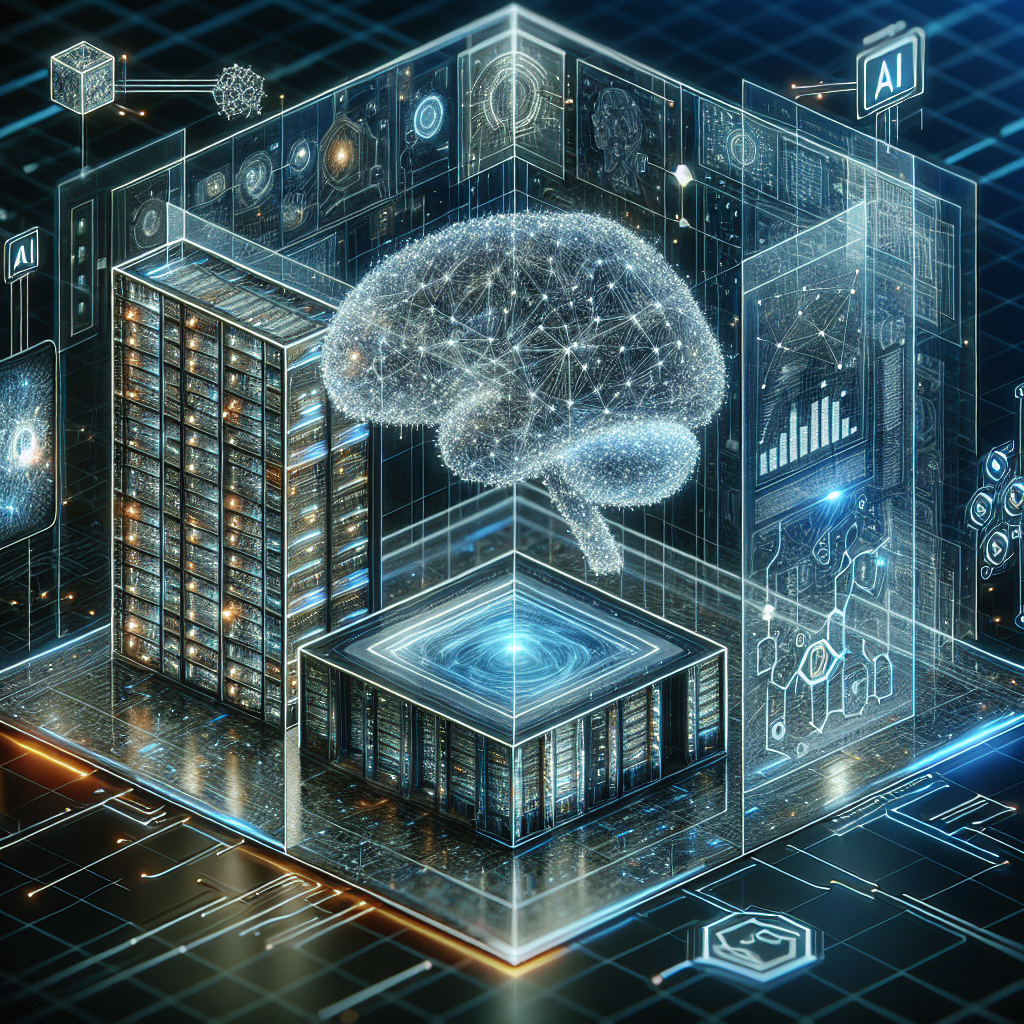Artificial Intelligence (AI) has been revolutionizing various industries, and data warehousing for business intelligence is no exception. AI is transforming the way businesses handle and analyze large amounts of data, leading to more informed decision-making and better outcomes. In this article, we will explore how AI is reshaping data warehousing for business intelligence and the benefits it brings to organizations.
What is Data Warehousing?
Data warehousing is the process of collecting, storing, and managing large volumes of data from various sources within an organization. This data is then used to analyze and extract valuable insights that can help businesses make informed decisions. A data warehouse is a centralized repository that allows businesses to store and access large amounts of structured and unstructured data.
Traditionally, data warehousing involved manually collecting and organizing data from different sources, which was a time-consuming and labor-intensive process. However, with advancements in technology, data warehousing has become more automated and efficient, thanks to the integration of AI.
How AI is Transforming Data Warehousing for Business Intelligence
1. Data Integration and Cleansing
One of the key challenges in data warehousing is integrating data from various sources and ensuring its accuracy and consistency. AI tools can automate this process by identifying and resolving data inconsistencies, duplicates, and errors in real-time. By using AI algorithms, businesses can ensure that their data is clean and ready for analysis, saving time and resources that would have been spent on manual data cleansing.
2. Data Analysis and Insights
AI algorithms can analyze large volumes of data at a speed and accuracy that is impossible for humans to match. By using machine learning and natural language processing algorithms, businesses can uncover hidden patterns, trends, and insights in their data that can help them make more informed decisions. AI can also provide real-time analytics, allowing businesses to respond quickly to changing market conditions.
3. Predictive Analytics
AI-powered predictive analytics can help businesses forecast future trends and outcomes based on historical data. By using machine learning algorithms, businesses can identify patterns and correlations in their data that can help them predict customer behavior, market trends, and other important factors. This can give businesses a competitive edge by allowing them to anticipate changes and adjust their strategies accordingly.
4. Personalized Recommendations
AI can analyze customer data to provide personalized recommendations and targeted marketing campaigns. By using machine learning algorithms, businesses can understand customer preferences and behavior, allowing them to offer personalized products and services that meet their needs. This can lead to higher customer satisfaction and loyalty, ultimately driving revenue growth.
5. Automation
AI tools can automate repetitive tasks in data warehousing, such as data entry, processing, and reporting. This can free up valuable time for employees to focus on more strategic tasks, such as analyzing data and making decisions. Automation can also reduce the risk of human error and improve the overall efficiency of data warehousing operations.
6. Natural Language Processing
AI-powered natural language processing (NLP) tools can analyze unstructured data, such as text and speech, to extract valuable insights. By using NLP algorithms, businesses can analyze customer feedback, social media posts, and other unstructured data sources to gain a deeper understanding of customer sentiment and preferences. This can help businesses tailor their products and services to better meet customer needs.
7. Data Security
AI can help enhance data security in data warehousing by identifying and mitigating potential threats and vulnerabilities. AI-powered security tools can monitor data access and usage patterns to detect anomalies and unauthorized access attempts. By using AI for data security, businesses can protect their sensitive information and prevent data breaches.
FAQs
Q: How can AI help businesses improve data quality in data warehousing?
A: AI tools can automate data cleansing processes, identify and resolve data inconsistencies, duplicates, and errors, ensuring that data is accurate and reliable for analysis.
Q: What are the benefits of using AI-powered predictive analytics in data warehousing?
A: AI-powered predictive analytics can help businesses forecast future trends and outcomes, identify patterns and correlations in data, and predict customer behavior, market trends, and other important factors.
Q: How does AI enhance data security in data warehousing?
A: AI-powered security tools can monitor data access and usage patterns, detect anomalies and unauthorized access attempts, and protect sensitive information from data breaches.
Q: Can AI automate data warehousing operations?
A: Yes, AI tools can automate repetitive tasks in data warehousing, such as data entry, processing, and reporting, freeing up time for employees to focus on more strategic tasks.
In conclusion, AI is transforming data warehousing for business intelligence by automating data integration and cleansing, providing advanced data analysis and insights, enabling predictive analytics, offering personalized recommendations, automating tasks, using natural language processing, and enhancing data security. By embracing AI technologies, businesses can unlock the full potential of their data and gain a competitive edge in the market.

